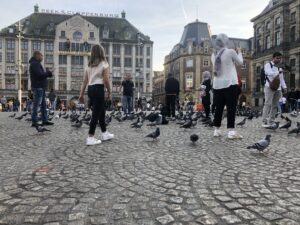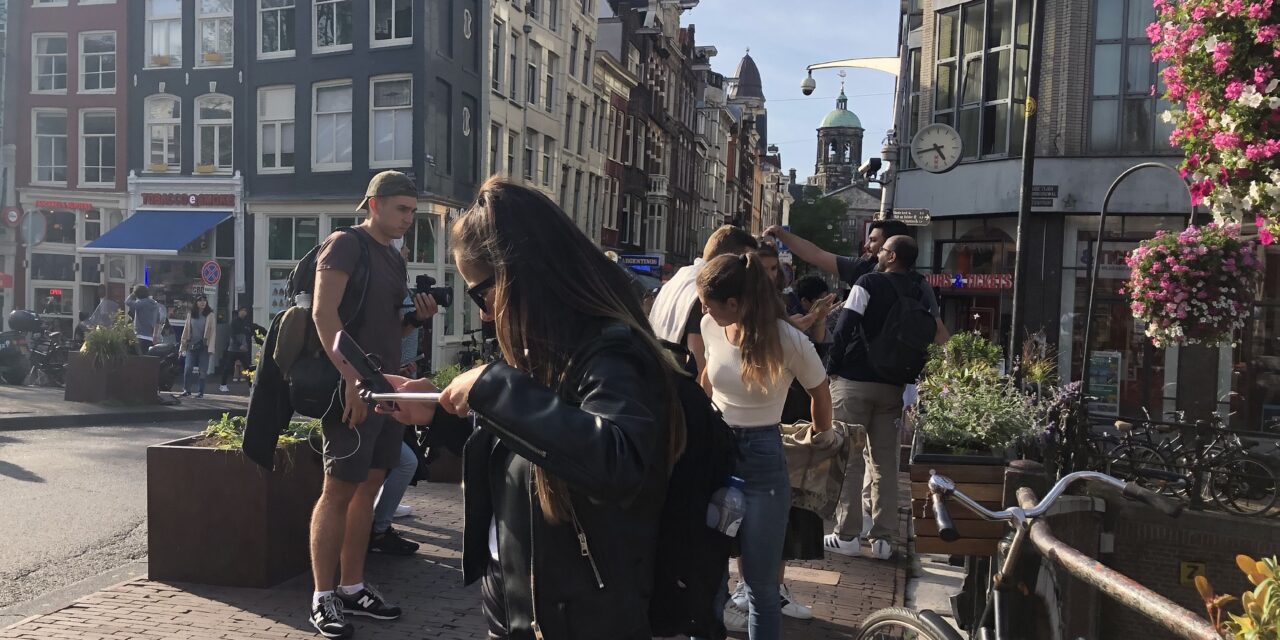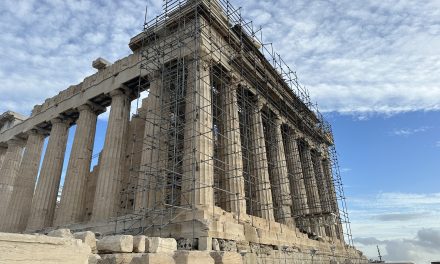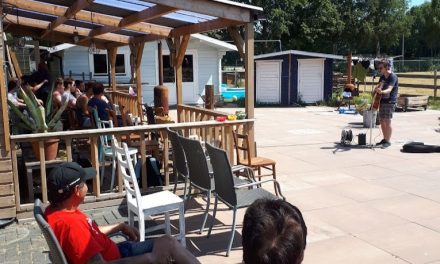It is hard to imagine, millions of people travelling and visiting the highlights of Europe. The Eiffeltower, Colosseum and the canals of Amsterdam are all places that attract people from over the whole world to come to Europe each year. But in 2020 the tourism sector collapsed, the number of international tourist arrivals dropped 70% in comparison with 2019. The sector won’t ever be the same as we knew it before the pandemic hit. But this doesn’t have to be such a bad thing.
‘Covid is the worst crisis we have been through in the last couple of decades, because it is so global. When it comes to tourism, it feels like a before and after covid. We are now in a period where define what tourism was, is and should be in the future. But not just tourism, but all that is connected to it. Transportation, agriculture, hospitality and the economy.’ Says Eduardo Santander, executive director of the European Travel Commission (ETC). The ETC is a non-profit organization that is responsible for promoting Europe as a tourist destination and they research tourism-related topics. Despite the pandemic, the ETC is optimistic about the future, though the entire industry needs to think about how it will look like. ‘We have to educate tour operators, travel agents, governments, but also young and old people about the way we can do things better in the future. Travelling should be possible, but in what way? We have to think about qualitative indicators rather than quantitative indicators. It is not about how many visitors a city like Amsterdam receives, but what they contribute to the community,’ says Santander.

A place in Amsterdam where many tourists come, De Dam. Know for the pigeons and living statues.
Covid caused a time to really think about mass tourism. In some cities like Barcelona and Amsterdam, there was already a discussion about the existing mass tourism in 2019. The disadvantages such as the enormous dependency, the negative side effects and the sustainability of tourism were already being discussed. Because of Covid, this has become even more intense. According to Rene van der Duim, a professor of Tourism and Sustainable Innovation, some travel destinations don’t want to go back to the old situation. But then something needs to change in the future.
“How can we develop tourism in such a way that as a destination we benefit both economically and in other ways?” is a frequently asked question among the destinations. ‘Some southern Europa countries knew already that their business models will not last forever. The countries are beautiful, natural and cultural and have a rich history. They have to manage that differently in the future.’
Slow tourism
Another trend is that people are becoming more aware of their surroundings and the climate. ‘Eventually, the Covid crisis will pass, but then the next crisis will be waiting for us. Precisely, the climate crisis,’ says van der Duim. ‘On one side you have a movement among both the provider and the consumer to become more sustainable, but on the other side, you also have market parties who come up with offers that are not sustainable at all. For example, airline tickets to the south of Europe for only € 20, -. But, very slowly, the conscious consumer is starting to play a major role in sustainable tourism, especially compared to twenty years ago.’ This results in a new form of tourism; slow tourism. This is a new, sustainable way of tourism. There is more focus on local history and culture while supporting the environment. ‘People are meant to move, travel and visit, we are very eager to learn about other countries and cultures and other ways of living. I think in the future, there will be other kinds of holidays. Not so short, but more oriented to be sustainable. Longer holidays, but also more for the experience. The quality of tourism will be much better in the future,’ according to Santander.




